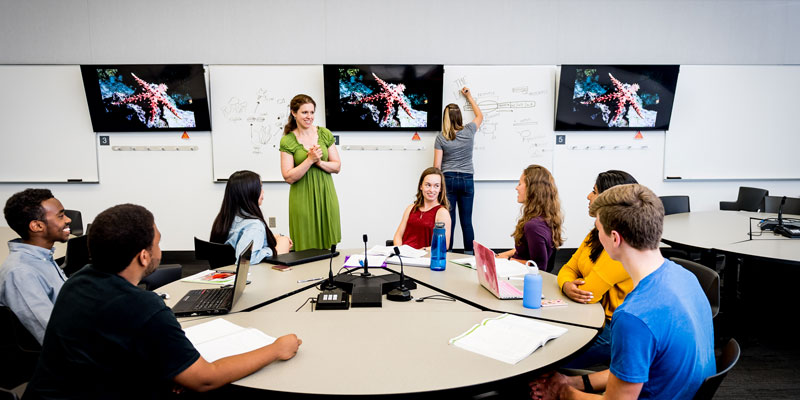The program kicks off this fall and focuses on advancing anti-racist teaching practices in CBS classrooms and labs.

This fall, a group of faculty members and teaching assistants (TAs) are working together to identify practices and set goals that support anti-racist approaches to teaching. Culturally Responsive Undergraduate Science Education (CRUSE) builds on a TA training program the College launched in 2017, but focuses specifically on tackling racism.
“When faculty talk about inclusive teaching, there’s a tendency to focus on gender and first-generation students,” says Sehoya Cotner, an associate professor in Biology Teaching and Learning. “Generally speaking, faculty are terrified to focus on race. Now more than ever, there’s a willingness to talk about racism in higher education.” Cotner and Hillary Barron, a postdoc in her lab, are co-leading the initiative.
A core tenet of culturally responsive teaching is recognizing the different types of knowledge that students walk into the classroom with. For instance, asking students to share methods that their families preserve food might kick off a semester-long microbiology lab on fermentation.
Social justice is another important component. The location of superfund sites — or areas with high levels of pollution — often impact communities of color and low income communities more than others. Recognizing these intersections of science and society is important in culturally responsive teaching.
Barron knows that the process can seem intimidating for a faculty member or TA to undergo. “One thing to keep in mind is that practicing culturally responsive teaching is just as much about an instructor trying to do something that is culturally responsive versus what the end result is,” says Barron.
Goal setting is a key part of the program and will help the faculty member and TA participants hold each other accountable. Cotner and Barron hope to see the program lead to guiding principles for anti-racist teaching practices that spread aross the College and to peer instutions.
“Effective science teaching does not only mean sharing content, developing critical thinking, or engaging students in research,” says Barron. “It is centering the experiences of people who have been historically excluded and marginalized.” — Claire Wilson
Image disclaimer: This photo was taken prior to the onset of the COVID-19 pandemic.